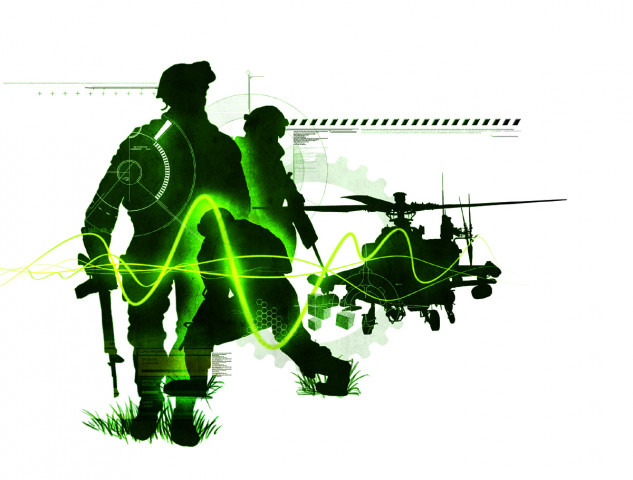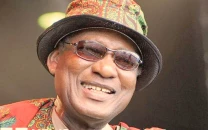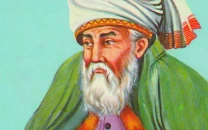War games
Compared to movies inspired by America's contemporary wars, video games that evoke current conflicts are blockbusters.

Even The Hurt Locker grossed only $16 million in theaters. Video games that evoke current conflicts, on the other hand, are blockbusters: Last year’s best-selling game was “Call of Duty: Modern Warfare 2”, which opens in Afghanistan; it was a sequel to a multimillion-selling 2007 game that features an American invasion of a nameless Middle Eastern country. On the day the game was published in November, it sold nearly five million copies in North America and Britain, racking up $310 million in sales in 24 hours. By January of this year, the game’s worldwide sales added up to $1 billion.
For years, earlier installments of the “Call of Duty” franchise and other military shooters — the video-game industry’s term for these games about warfare — were always about World War II. But the “Modern Warfare” series has demonstrated that players have an appetite for games that purport to connect them to the wars their college roommates, or their sons, might be fighting in. Both “Modern Warfare” games are set in a mythical near-future, but the weapons — Predator drones, AC-130 gunships, nukes — clearly conjure Afghanistan and Iraq, as do the games’ good guys (Americans, British) and bad guys (terrorists). The appeal of this quasi-fictional setting is one reason that “Modern Warfare 2” now sits alongside titles from more-famous franchises like “Grand Theft Auto” and “Super Mario” on the lists of the top-selling video games ever made.
“Medal of Honour”, the latest iteration of a game franchise created in 1999 by Steven Spielberg, in the wake of Saving Private Ryan, as a World War II game for Dreamworks Interactive, is following the path trod by “Call of Duty” — rebooting a popular World War II series by situating a game in something that resembles the present day. Unlike its rival, however, “Medal of Honour” is not anticipating the very near future. Instead it is delving into the very recent past: The game will be set in Afghanistan, in the early stages of the American intervention there.
“Medal of Honour” does not aspire to capture the war in Afghanistan in a documentary sense, but like other shooters, it creates a visceral sensation of combat. In essence, it forgoes one kind of realism while embracing another. Are video games like this mere frivolities that dishonour the real soldiers who have fought in the wars depicted — as critics, including military families, have recently charged? Or does their popularity indicate that they are successfully conveying an experience of war to audiences in a way that is at least as effective and affecting as the war stories told in literature or film?
In its opening moments, “Medal of Honour” places the player in the body of a member of a Navy Special Operations team infiltrating the Taliban-held town of Gardez, Afghanistan. The game later puts players behind the eyes of an Army Special Operations soldier, as well as an Army Ranger and an Apache helicopter gunner, as they seize Bagram air base from the Taliban, ride all-terrain vehicles through the Shah-i-Kot Valley, snipe al-Qaeda fighters near the mountain of Takur Ghar and more.
In the argot of video games, “Medal of Honour” is a first-person shooter, meaning that players see the action from the viewpoint of the characters they control. One of the most compelling things about video games is this sense of identification between the player and the protagonist. The best games do not give you a sense that you are controlling someone else — they give you a sense that you are someone else.
“We don’t ever want to break that immersion, that it’s you, there,” says Greg Goodrich, the game’s executive producer.
One of the buzzwords tossed around frequently by the “Medal of Honour” team is “authenticity”. The game has more than 50 actors, delivering thousands of lines of dialogue, with foreign dialogue recorded in Pashto, Gulf Arabic and Chechen. To create some of the animation used in the game, the computer-graphics team examined videos from Afghanistan that are posted on sites like YouTube and LiveLeak. Using more than 100 microphones, audio engineers recorded actual weapons fire at Fort Irwin in California, in a mock Iraqi village used by the military for training. With the Pentagon’s permission, the audio team attached microphones to Apache helicopters and recorded the sounds of takeoffs and landings, as well as the sounds of the helicopters firing their rounds. They even hooked microphones up to the targets that the helicopters destroyed.
Goodrich described “Medal of Honour” as “historical fiction”, but it felt transgressively real when I played it. The battles are fought in civilian-free zones, where pretty much everyone you encounter is an enemy — Taliban, al-Qaeda or Chechen — and a threat to your life. I killed a lot, and was killed, a lot.
There are limits to the game’s aspirations to realism. I was repeatedly told that “Medal of Honour” intentionally avoided the subject of politics in favor of “telling the soldier’s story.” Still, mistakes are made in the game by American troops and commanders. Friendly fire accidents happen. The intelligence agencies get things wrong. No matter how skilled a player is, Americans will die.
A mini-scandal over “Medal of Honour” played out in August after Karen Meredith, the mother of Ken Ballard, an Army lieutenant killed in Najaf, Iraq, in 2004, went on “Fox and Friends” and said that any game based on a continuing conflict was “disrespectful” to those whose family members have died in the war. “Families who are burying their children are going to be seeing this,” she said. Not long after Meredith’s interview with Fox News, Britain’s defense secretary, Liam Fox, called the game “un-British” because, in its multiplayer incarnation, it will allow players to fight as the Taliban against coalition forces. “I would urge retailers to show their support for our armed forces and ban this tasteless product,” he said. Earlier this month, a Defense Department agency asked GameStop, a chain of video-game stores, not to sell “Medal of Honour” on Army and Air Force bases.
Liam Fox is a member of Britain’s Conservative Party; others, on the left, have raised their own reasons to find “Medal of Honour” disquieting. An editor at Mother Jones, Adam Weinstein, blogged in August that the game is “war profiteering of the first order”, and Adam Serwer, who blogs for The American Prospect, wrote, “Realistic war simulations have always bothered me.” Serwer added, “I’m playing video games to escape from the frustrations of the real world, I don’t want to be thrust into another, realistic existence far more bleak than the one I’m currently living.”
Many gamers, however — no matter their politics — subscribe to a McLuhanesque notion that only the form, and never the content, of this medium is of significance. Video games, in this view, are about problem-solving and game play, the captivating, kinetic interaction between the movements a player makes on a controller and the simultaneous action on-screen. Will Wright, the designer of games like “SimCity” and “The Sims”, has seemed to embrace this view, saying that games are about agency (the ability to navigate a virtual world), not empathy (relating emotionally to the particulars of that world).
But in many ways, the main project of the past several years among video-game developers has been to try to prove Will Wright wrong. Maybe the agency that games allow can, in the hands of the right storytellers, lead to empathy. Maybe the interactive nature of video games can, when combined with narrative elements like story and character, evoke feelings in players in a way that is unique to the medium.
After all, the video gamers who choose to play military shooters typically take the fictional elements of these games quite seriously. A survey conducted by Joel Penney, a doctoral student at the University of Pennsylvania’s Annenberg School for Communication, found that these gamers viewed their chosen pastime as something more than simple escapism or problem-solving exercises with good sound effects. The players — adults mostly between ages 18 and 29 (though some were in their 50s), largely Americans and almost all men — said playing the World War II versions of “Medal of Honour” or “Call of Duty” made them feel empathy for their countrymen. One wrote that, after playing the games, his “feelings have deepened in respect for those who have died.”
Greg Goodrich told me that the “holy grail” of his medium was to get game play and fiction to interact in such a way that the fusion of the two would affect players in ways that movies and books cannot. “I think you have the potential to touch them in a more emotional and engaging way because they took part in it,” he said.
In The London Review of Books last year, John Lanchester called the first “Modern Warfare” game, published in 2007, “more involving” than the Hollywood movies with which it might be compared. “The next decade or so is going to see the world of video games convulsed by battles between the moneymen and the artists,” Lanchester wrote. “If the good guys win, or win enough of the time, we’re going to have a whole new art form.”
But the feeling among many video-game players is that the artists lost an important skirmish a little more than a year ago. In April 2009, the video game “Six Days in Fallujah” was canceled by its Japanese publisher, Konami, in the very same month that the game’s development was announced to the public. “Six Days in Fallujah” had been billed as an “interactive documentary” about the second battle of Fallujah in 2004. In addition to working with actual Marines who fought in Fallujah, the game’s developers said they were talking to Iraqis who lived through the battle — both civilians and insurgents.
Peter Tamte, the president of Atomic Games, the North Carolina-based studio that was developing “Six Days in Fallujah” for Konami before it was cancelled, told me this summer that “the heart of the controversy that caused Konami to pull out of the project-was the combination of “the stereotypes that are associated with the word ‘game’ and the incompatibility of that with the word ‘Iraq’.”
Read Omohundro, the captain of a Marine company that fought in Fallujah, served as a consultant on the game. “It’s very important to have the enemy’s perspective of what’s going on,” he told me. “You have to understand the environment, and if you just see it from the American viewpoint, that’s all you know.”
“Six Days in Fallujah” proposed adding “a layer of moral ambiguity” to warfare that Jamin Brophy-Warren, a former Wall Street Journal reporter who now publishes Kill Screen, a magazine about video games, says he hasn’t seen in other military shooters. “There’s an Iraqi who picks up a gun, and you don’t know if he’s an insurgent or not,” he said. “Do you shoot him?”
Omohundro described the reaction from the public, especially from a group of mothers whose sons had been killed in action in Fallujah, as “blinded by fury.” Beth Houck, the mother of David Houck, a Marine rifleman who was killed in Fallujah in 2004, told me that her objections to “Six Days in Fallujah” apply to “Medal of Honour” as well: Despite the genre’s claims to authenticity, military shooters do not show the toll the wars have taken on the home front. “They don’t show the heartache of family members who are left without a spouse, or a father, or a child who does not return,” she said.
Omohundro says he is disappointed the game was never completed. A video game, he suggested, can portray combat in a way that is impossible to achieve in another medium. “In a movie, you don’t get the opportunity to make decisions that have consequences,” he said. “You simply watch what’s on the screen that’s in front of you.”
The Marines that “Six Days in Fallujah” planned to portray would have been based on real people who fought in a real battle. The soldiers in “Medal of Honour,” on the other hand, are fictional characters. But some of them are inspired by the careers of real service members, men now working as consultants to the game who have experience in Special Operations in Afghanistan and elsewhere. On Father’s Day, I met with three of them for brunch at the Ritz-Carlton in Marina del Rey, Calif. They did not tell me their names and instead asked to be known by the handles — Coop, Dusty and Vandal — by which they are known inside Electronic Arts.
Coop, Dusty and Vandal acknowledged that one of the things they asked the “Medal of Honour” developers to do was to make the game less realistic than its creators initially envisioned. “They’re selling authenticity and realism,” said Coop. “We wanted to help bring that to the table. But we also wanted to make sure it didn’t go too far.”
Last summer, Goodrich showed the men storyboards for a game, with the title “Medal of Honour: Anaconda”, that would be something like a “Black Hawk Down” for Afghanistan: It would be based on the disastrous 2002 operation known as Anaconda, including the battle of Takur Ghar, in which Neil Roberts, a Navy Seal, fell out of a helicopter and was dragged away to his death by al-Qaeda fighters. “We thought it hit a little too close to home” and would “put a sour taste in our brothers’ mouths,” Coop said.
That night, Goodrich told the men at dinner that he would excise the scene with Neil Roberts from the game and change the game into a work of historical fiction rather than a sort of docudrama. Goodrich says the consultants helped to make the game “authentic and plausible” rather than “accurate and realistic.”
“There’s nothing so close where it’s a re-enactment,” Coop said at brunch. “In my eyes, that would be wrong.”
“Medal of Honour” may not reinvent the first-person shooter, but some in the industry — including several who worked on “Six Days in Fallujah” — hope that its mere existence is a brave and incremental step that will pave the way for nonfiction approaches to war in the medium. A video-game documentary about Iraq or Afghanistan is inevitable, whether it is a “Medal of Honour” sequel, or “Six Days in Fallujah”, or another game altogether, Read Omohundro told me.
“I think that eventually it will be permitted,” he said. “And if it becomes permitted, it will be accepted. It’s just going to take a while.” — New York Times Syndicated Services
Published in The Express Tribune, September 26th, 2010.



















COMMENTS
Comments are moderated and generally will be posted if they are on-topic and not abusive.
For more information, please see our Comments FAQ